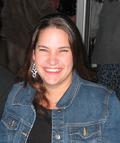Cited By
View all- Nnamani MSheldon JBoisvert DReich JStone JYuen TShoop LRebelsky SPrather J(2025)Evaluating Students' Experience in High School CS Education: A CAPE Framework-Based ApproachProceedings of the 56th ACM Technical Symposium on Computer Science Education V. 210.1145/3641555.3705176(1559-1560)Online publication date: 18-Feb-2025
- Yan WHovermill JPrescott PAmresh APearson TStrickland CIsrael M(2024)Teaching Computing in Indigenous Schools: An Early Experience ReportProceedings of the 2024 on RESPECT Annual Conference10.1145/3653666.3656104(201-205)Online publication date: 16-May-2024
- Parker MHendrickson K(2022)Capacity-related factors associated with computer science access and participation in Georgia public high schoolsPolicy Futures in Education10.1177/14782103221081920Online publication date: 14-Apr-2022
- Show More Cited By


